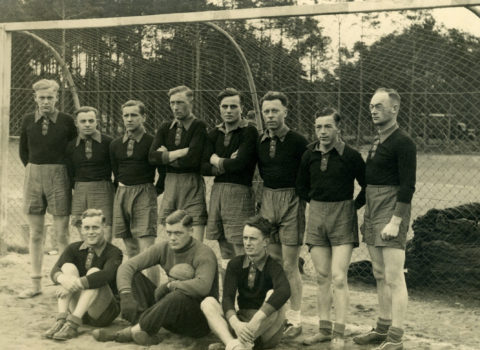
The “treat” culture
In this article that was published in the "Il T" newspaper on September 21, Claudio Ferlan analyzes the widespread and often unfounded fear of conspiracy, typical of a large part in the Italian sports press.
The recent group stage of the Davis Cup played in Bologna re-presented for Italian tennis one of the eternal returns, typical of our underdeveloped sports culture: the “treat” suspicion.
The facts, in brief, are these. After being defeated against the odds (and against the rankings) by Canada, Italy’s tennis beat Chile’s with difficulty and – according to the allegations of certain and the majority of the specialized press – had to live with the concerns of a possible combine. Taking one headline as an example, the pages of a sports website read “Poor Italy!” complete with an exclamation point to reinforce the concept expressed in the subtitle: “Likely ‘treat’ between Chile and Canada: a result would disqualify us.” The result was two to one for Chile, but the bombastic journalistic alarm was triggered for no reason: nothing was arranged, Canada beat Chile, and Italy qualified by winning against Sweden, the group’s tail end. Why compose headlines of this tone? Clickbait culture certainly played its part: luring the reader with catchy allegations induces people to click and (perhaps) read; the more people click, the greater the potential advertising revenue.
Sports journalism is one of the areas that has suffered most from the decline in the quality of articles. Helped by the frequent “free” coverage of a wide range of events, those who write about tennis, soccer and other sports often are not good writers and lack adequate professional skills. Thus, he or ahe takes refuge in what an excellent art history professor of mine used to call “cheap effects” when describing paintings when he took us to museums. But there is more, there is the idea that the sports world is fundamentally unhonest, a belief that often leads fans (more than athletes) to think they are intended victims.
Last June, the culture of suspicion had been fueled by even more unlikely combinations. European Under-21 soccer: after losing to France and winning by a whisker against Switzerland, Italy was about to meet Norway, and a Switzerland-France three to two would disqualify Italy. Italy lost to Norway, France beat Switzerland, erasing without delay the meaning of the pages so beloved by the Italian sports media entitled “we will qualify if.” Our national team stopped in the first round without any need for under-the-table agreements between teams – who knows why alleged enemies of the poor “Azzurri”.
Why are we so suspicious, why should we think that professionals would randomly collude for the evil of Italy (the almost always designated victim, the others are less talked about)?
It should be added that the fear of “treats” always comes up in the unsportsmanlike exercise of remedying a defeat, or at least a couple of non-wins. Unsportsmanlike because competition normally it works like this: if you don’t win you are out, and that’s fair. Then you restart, you replay, of course, but defeat must be accepted, even if it is ugly. As a rule it is not a tragedy, but a normal stage in the competitive journey.
True, among the many feared but never happened combines, an episode occurred once that was at least suspicious. European Football Championship 2004: a very well-equipped Italy, after drawing the first two matches defeated Bulgaria in the third one, but was disqualified due to a simultaneous two-to-two draw between Sweden and Denmark. It was the perfect result to promote the two Scandinavian teams to the detriment of Italy, and it is quite plausible that, come the two to two, an unspoken agreement was made in order not to get hurt. It is a clue, probably the only one in the history of national team sports, about which we continue to harbor suspicions like the two listed above, being bound, without fail, not to come true. But a clue, everybody knows, proves nothing. Let us also not forget that in that case nineteen years ago what ousted Italy from the tournament in the first place was winning only one game out of three. Let us also not forget that in many other cases the results of others helped us.
Sport is looking at one’s team, not depending on the performance of others, accepting defeat and respecting the opponent. Sport is taking the field, giving one’s best, and reckoning only at the end.
Let’s close with a fun fact. Why “treat”? In all likelihood, the expression comes from horse racing and in particular from the world of illegal betting. It harkens back to the unhealthy habit of feeding horses, close to the race, with a treat containing stimulating or calming substances depending on the intention to have the horse win or loose the race. The treat aimed to alter the outcome.



